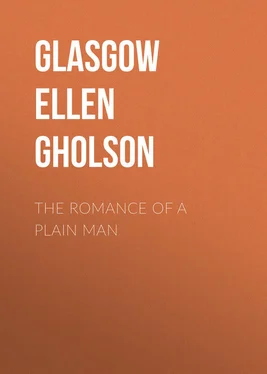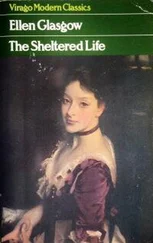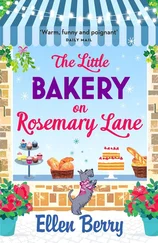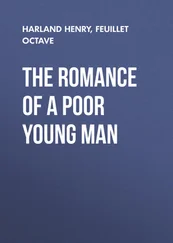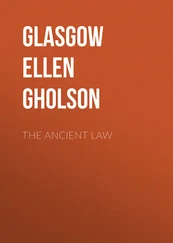Ellen Glasgow - The Romance of a Plain Man
Здесь есть возможность читать онлайн «Ellen Glasgow - The Romance of a Plain Man» — ознакомительный отрывок электронной книги совершенно бесплатно, а после прочтения отрывка купить полную версию. В некоторых случаях можно слушать аудио, скачать через торрент в формате fb2 и присутствует краткое содержание. Жанр: Технические науки, foreign_antique, foreign_prose, на английском языке. Описание произведения, (предисловие) а так же отзывы посетителей доступны на портале библиотеки ЛибКат.
- Название:The Romance of a Plain Man
- Автор:
- Жанр:
- Год:неизвестен
- ISBN:нет данных
- Рейтинг книги:4 / 5. Голосов: 1
-
Избранное:Добавить в избранное
- Отзывы:
-
Ваша оценка:
- 80
- 1
- 2
- 3
- 4
- 5
The Romance of a Plain Man: краткое содержание, описание и аннотация
Предлагаем к чтению аннотацию, описание, краткое содержание или предисловие (зависит от того, что написал сам автор книги «The Romance of a Plain Man»). Если вы не нашли необходимую информацию о книге — напишите в комментариях, мы постараемся отыскать её.
The Romance of a Plain Man — читать онлайн ознакомительный отрывок
Ниже представлен текст книги, разбитый по страницам. Система сохранения места последней прочитанной страницы, позволяет с удобством читать онлайн бесплатно книгу «The Romance of a Plain Man», без необходимости каждый раз заново искать на чём Вы остановились. Поставьте закладку, и сможете в любой момент перейти на страницу, на которой закончили чтение.
Интервал:
Закладка:
"Thar's no doubt that it is true, mum," rejoined my father; and when he took his leave a few minutes afterwards, their relations appeared to have become extremely friendly, – not to say confidential. For an instant I trembled in my hiding-place, half expecting to be delivered into his hands. But he departed at last without discovering me, and I emerged from the darkness and stood before Mrs. Chitling, who had begun absent-mindedly to take down her curl papers.
"Most likely it ain't his fault arter all," she observed, for her judgment of him had already become a part of the general softness and pliability of her criticism of life; "he seems to be a nice sensible body with proper ideas about women. I like a man that knows a woman's place, an' I like a woman that knows it, too. Yo' ma was a decent, sober, hard-workin' person, wa'nt she, Benjy?"
I replied that she was always in her kitchen and generally in her washtub, except when she went to funerals.
"Well, I ain't any moral objection to a funeral now an' then, or some other sober kind of entertainment," returned Mrs. Chitling, removing her curl papers in order to put on fresh ones, "but what I say is that the woman who wants pleasure outside her do' ain't the woman that she ought to be, that's all. What can she have, I ax, any mo' than she's got? Ain't she got everything already that the men don't want? Ain't sweetness an' virtue, an' patience an' long suffering an' childbearin' enough for her without her impudently standin' up in the face of men an' axin' for mo'? Had she rather have a vote than the respect of men, an' ain't the respect of men enough to fill any honest female's life?"
In the beginning of her discourse, she had turned aside to slap a portion of cornmeal into a cracked yellow bowl, and after pouring a little water out of a broken dipper, she began whipping the dough with a long, irregular stroke that scattered a shower of fine drops at every revolution of her hand. Two of the children had got into a fight over a basin of apple parings, and she left her yellow bowl and separated them with a hand that bestowed a patch of wet meal on the hair of one and on the face of another. Not once did she hasten her preparations or relinquish the cheerful serenity which endowed her large, loose figure with a kind of majesty.
The next day I started in as general assistant and market boy to John Chitling, and when I was not sorting over ripe vegetables or barrels of apples fresh from the orchard, I was toiling up the long hill, with a split basket, containing somebody's marketing, on my arm. By degrees I learned the names of John Chitling's patrons, the separate ways to their houses, which always seemed divided by absurd distances, and the faces of the negro cooks who met me at the kitchen steps and relieved me of my burden. In the beginning I was accompanied on my rounds by a fat, smudge-nosed youth some six or eight years my senior, who smoked vile tobacco and enlivened the way by villainous abuses of John Chitling and the universe. For the first months, I fear, my outlook upon the customers I served was largely coloured by his narratives, but when at last he dropped off and went on a new job at the butcher's, I arrived gradually at a more correct, and certainly a more charitable, point of view. By the end of the winter I had ceased to believe that John Chitling was a skinflint and his customers all vipers.
In the bright soft weather of that spring the city opened into a bloom of faint pink and white, which comes back to me like a delicate fragrance. The old gardens are gone now, with their honeysuckle arbours, their cleanly swept walks, bordered by rows of miniature box, their deep, odorous bowers of microphylla and musk cluster roses. Yet I can look back still through the gauzy shadows of elms and sycamores; I can hear still the rich, singing call of the negro drivers, as the covered wagons from country farms passed sleepily through the hot sunshine which fell between the arching trees; and I can smell again the air steeped in a fragrance that is less that of flowers than of the subtle atmosphere of an unforgettable youth. To-day the city is the same city no longer, nor is the man who writes this the market boy who toiled up the long hill in the blossoming spring, with the seeds of the future quickening in brain and heart.
The morning that I remember best is the one on which I carried the day's marketing to an old grey house, with beds of wallflowers growing close against the stuccoed bricks, and a shrub that flowered bright yellow glancing through the tall gate at the rear. I had passed the wallflowers as was my custom, and entering the gate at the back, had delivered my basket at the kitchen door, when, as I turned to retrace my steps, I was detained by the scolding voice of the pink-turbaned negro cook.
"Hi! if you ain' clean furgit de car'ots!" she cried.
Now the carrots had been placed in the basket, as I had seen with my own eyes, by the hands of John Chitling himself, and I had been cautioned at the time not to drop them out in my ascent of the steep hill. There was a lady in the grey house, he had informed me, who was supposed to subsist upon carrots alone, and who was in consequence extremely particular as to their size and flavour.
"Are you sure they ain't among the vegetables?" I asked. "I saw them put in myself."
"Huh! en you seed 'em fall out, too, I lay!" rejoined the negress, protruding her thick red lips as she turned the basket upside down with an indignant blow.
"If they're lost, I'll go back and bring others," I said, thinking disconsolately of the hill.
"En you 'ould be back hyer agin in time fur supper," retorted the outraged divinity. "Wat you reckon Miss Mitty wants wid car'ots fur 'er supper? Dey is hern, dey ain' mine, but ef'n dey 'us mine I'd lamn you twel you couldn't see ter set. Hit's bad enough ter hev ter live erlong in de same worl' wid de slue-footed po' white trash widout hevin' dem a-snatchin' de car'ots outer yo' ve'y mouf."
My temper, never of the mildest, was stung quickly to a retort, and I was about to order her to hold her tongue and return me my basket, when the door into the house opened and shut, and the little girl of the enchanted garden appeared in the flesh before me.
"I want the plum cake you promised me, Aunt Mirabella," she cried; "and oh! I hope you've stuffed it full of plums!" Then her glance fell upon me and I saw her thick black eyebrows arch merrily over her sparkling grey eyes. "It's my boy! My dear common boy!" she exclaimed, with a rush toward me. For the first time I noticed then that she was dressed in mourning, and that her black clothes intensified the dark brightness of her look. "Oh, I am glad to see you," she added, seizing my hand.
I gazed up at her, wounded rather than pleased. "I shan't be a common boy always," I answered.
"Do you mind my calling you one? If you do, I won't," she said, and without waiting a minute, "What are you doing here? I thought you lived over on Church Hill."
"I don't now. Ma died and I ran away."
"My mother died, too," she returned softly, "and then grandmama."
For a moment there was a pause. Then I said with a kind of stubborn pride, "I ran away."
The sadness passed from her and she turned on me in a glow of animation. "Oh, I should just love dearly to run away!" she exclaimed.
"You couldn't. You're a girl."
"I could, too, if I chose."
"Then why don't you choose?"
"Because of Aunt Mitty and Aunt Matoaca. They haven't anybody but me."
"I left my father," I replied proudly, "and I didn't care one single bit. That's the trouble with girls. They're always caring."
"Well, I'm not caring for you," she retorted with crushing effect, shaking back the soft cloud of hair on her shoulders.
"Boys don't care," I rejoined with indifference, taking up my market basket.
Читать дальшеИнтервал:
Закладка:
Похожие книги на «The Romance of a Plain Man»
Представляем Вашему вниманию похожие книги на «The Romance of a Plain Man» списком для выбора. Мы отобрали схожую по названию и смыслу литературу в надежде предоставить читателям больше вариантов отыскать новые, интересные, ещё непрочитанные произведения.
Обсуждение, отзывы о книге «The Romance of a Plain Man» и просто собственные мнения читателей. Оставьте ваши комментарии, напишите, что Вы думаете о произведении, его смысле или главных героях. Укажите что конкретно понравилось, а что нет, и почему Вы так считаете.
